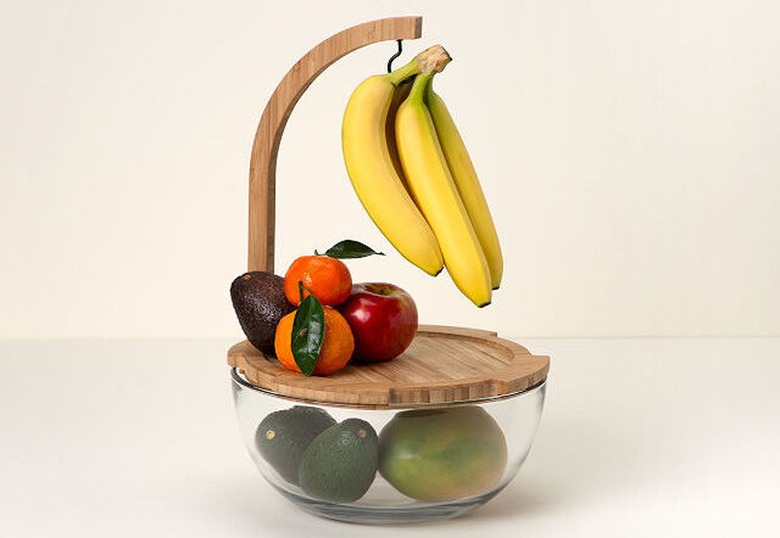How To Preserve Fruits And Veggies When It's Hot Outside
Eating fresh fruits and vegetables in the summer is basically heaven ... until you wait too long and that produce disintegrates before your eyes. But, why is that? And how do we prevent it from happening so we can enjoy our summertime snacks?
"As the storage temperature rises, fruit can ripen and soften faster," registered dietitian Libby Mills, a national spokesperson for the Academy of Nutrition and Dietetics, tells Hunker. "Older produce may not look as pretty — it may be withered, limp, or dried, but this produce is still edible in sauces, soups, purees, dips, and salad dressings." On the other hand, if your produce looks or smells rotten, throw it out or compost it ASAP.
According to Isabel Maples, a nutritionist and registered dietitian with the Academy of Nutrition and Dietetics, the pantry and refrigerator will only work for the short-term storage of small amounts of fruit and veg. "Fruits and vegetables can be stored frozen, canned, or dried to preserve them for later use," Maples advises. "Some methods work better than others for individual types of produce."
For produce like peaches, avocado, watermelon, nectarines, and tomatoes, Mills says that they prefer to be at room temperature until they ripen. At that point, they can be put in the fridge for two to three days. On the other hand, apples, cantaloupe, figs, plums, apricots, honeydew, cauliflower, cucumbers, cabbage, broccoli, lettuce, and Brussels sprouts can be kept solely in the refrigerator for a short amount of time.
Garlic, onions, potatoes, and winter squash should be kept in a cool, dark, dry place where there is plenty of ventilation. They should not be refrigerated.
You'll also want to consider whether or not your produce releases ethylene gas. "Ethylene, a gas released by some fruits and vegetables, speeds up ripening of produce that is ethylene sensitive," says Mills. "To prolong the shelf life of ethylene-sensitive produce, separate the ethylene producers — apples, avocados, bananas, cantaloupe, kiwi, peaches, pears, peppers, and tomatoes — from the ethylene-sensitive produce: asparagus, broccoli, collard greens, cucumber, eggplant, grapes, honeydew, lemons, lettuce, limes, mangos, squash, sweet potatoes, and watermelon."
Essentially, you should only buy produce you know you'll use in a short amount of time. And if the produce begins showing signs of deterioration, consider freezing, canning, drying, or using it in a recipe in which it will still be edible. Otherwise, you'll want to store each piece of fruit and vegetables on a case by case basis.
Who knew that our summer fruit selections could be so complex?
